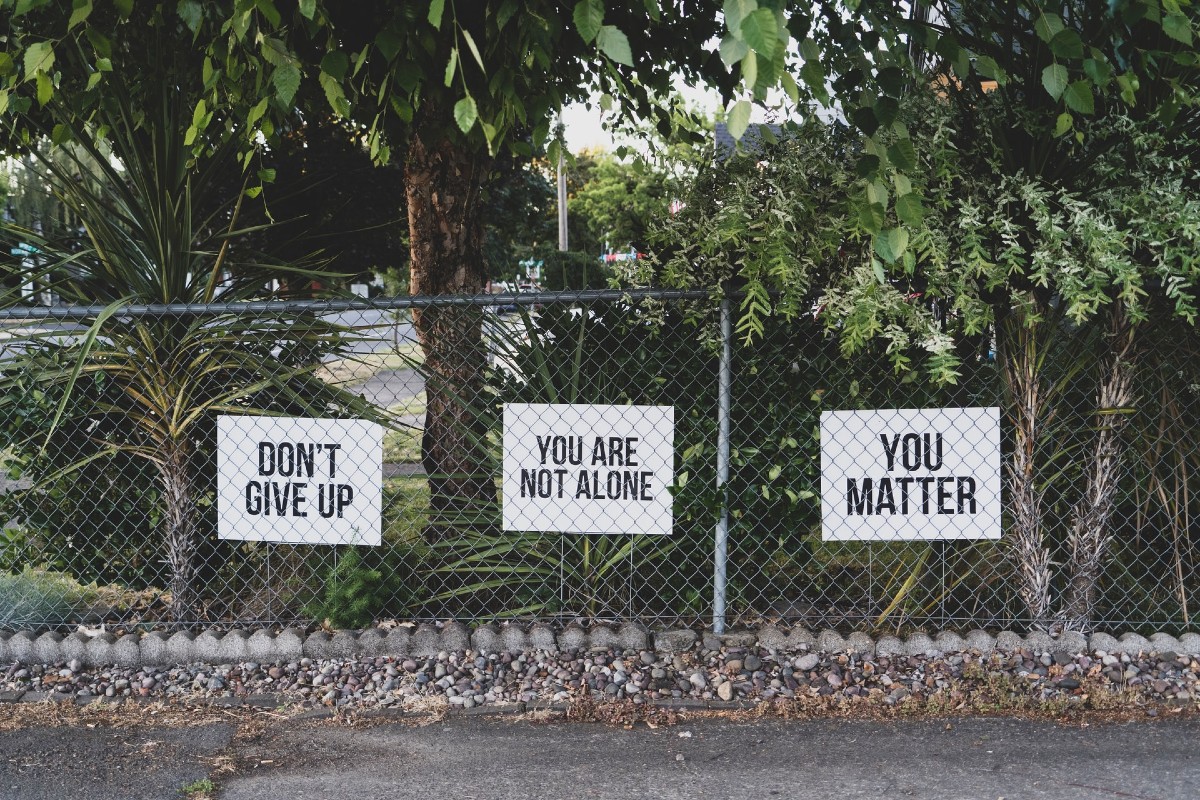
By Andy Brack | With school ramping up again, educators and policymakers need to keep a careful eye out for the mental health of our students. Since the pandemic, things haven’t been going well for many of them.
 “We have a mental health crisis in this country, especially among children and adolescents,” former state Superintendent of Education Jim Rex of Fairfield County tells us. “There’s been a three-fold increase among suicides and suicide attempts in the last four years.”
“We have a mental health crisis in this country, especially among children and adolescents,” former state Superintendent of Education Jim Rex of Fairfield County tells us. “There’s been a three-fold increase among suicides and suicide attempts in the last four years.”
Furthermore amidst Covid-generated isolation, distancing, virtual schooling and too much social media, there are more cases of depression, anxiety and eating disorders, Rex said.
According to a 2021 study by the Centers for Disease Control and Prevention, 37 percent of high school students reported their mental health has not been good most or all of the time during the pandemic.
“About three-in-10 high school students (31%) said they experienced poor mental health most or all of the time in the 30 days before the survey,” noted the Pew Research Center. “In addition, 44% said that, in the previous 12 months, they felt sad or hopeless almost every day for at least two weeks in a row such that they stopped doing some usual activities.”
Higher rates of mental health challenges are reported among students who are gay, lesbian or bisexual. For example, more than half of these students said they experienced poor mental health most of the time in the 30 days before the survey and three in four reported they felt sad or hopeless almost daily.
Gov. Henry McMaster rightly recognized the youth mental health crisis earlier this year in his State of the State address.
“This crisis is here, right now,” he said. “Students must have access to professional mental health counseling and services. Because 60 percent of South Carolina children are served by Medicaid, I have directed Health and Human Services Director Robbie Kerr to initiate an immediate review of our state’s behavioral health funding and delivery system. Time is of the essence. We must do better. The cost of doing nothing is unimaginable. And the damage, well, the damage will likely be immeasurable.”

But McMaster also suggested a review of state-run treatment programs including privatization of behavioral services offered by the state. That, we worry, would be a disaster. More than a generation ago, states de-institutionalized many facilities, sending the mentally ill to communities for care. Unfortunately, they didn’t spend the dollars for community treatment needed to successfully reintegrate patients with mental health issues into the community.
A smarter idea, perhaps, is to invest more resources at South Carolina’s schools to give more training to teachers – but also have more mental health counselors available. In days when lawmakers rush to put more cops in schools, it makes more sense to take those resources and divert them into counseling services to identify at-risk kids and help them before something goes wrong.
There are some hopeful signs on the horizon. As students return, school-issued identification cards from middle school through college are required to have the National Suicide Prevention Lifeline printed on them to share a resource with students.
More importantly, a new 988 suicide prevention hotline went into effect last month. But the hotline, based in the office of the nonprofit Mental Health America of Greenville, doesn’t have sustainable funding, according to one report. It needs more funding to keep up a doubled increase in calls since the hotline opened July 16.
Of the state’s $1.3 million budgeted in state aid for the hotline, some $700,000 over two years will support the existing Greenville call center and another $480,000 is supposed to go to a second call center in Charleston.
“It’s not a great day in South Carolina,” Charleston Democratic Rep. Wendell Gilliard said in a recent interview. “Bottom line: We screwed up. Mental illness should always be priority number one.”
Andy Brack is editor and publisher of Statehouse Report and the Charleston City Paper. Have a comment? Send to: feedback@statehousereport.com.















 We Can Do Better, South Carolina!
We Can Do Better, South Carolina!
An emphasize on “Student Mental Health” has always been a ‘low to no priority’ in SC . Unless or until a SC Statewide Strategic PLAN is implemented to document agency involvement and shared accountability for service delivery; ‘child well being stats’ in our state will remain tragically GRIM. Just take a look at the Annual Kids Count Report(PREPARED BY THE ANNIE CASEY FOUNDATION) for our state.
Every SC State Agency required to provide services for children and families should be REQUIRED to document service delivery on a STATEWIDE TECHNOLOGY PROGRAM for inner agency accountability and networking efforts. SHAME ON SC FOR PERPETUATING TRAGIC /CRIMINAL STATISTICS IN EVERY CATEGORY. LACK OF INNER AGENCY DOCUMENTEDATION AND SHARED RESPONSIBILITIES SABOTAGES EDUCATIONAL , SOCIAL, MENTAL HEALTH, AND PHYSICAL HEALTH OUTCOMES. CERTAINLY WE CAN NOT BE PROUD OF SUCH
TRAGIC OUTCOMES. BILLIONS OF DOLLARS ARE WASTED ANNUALLY.
Thank you for highlighting this. The toll of the pandemic on adolescents is a particular concern to me as a family physician. An organized, evidenced based approach is needed.